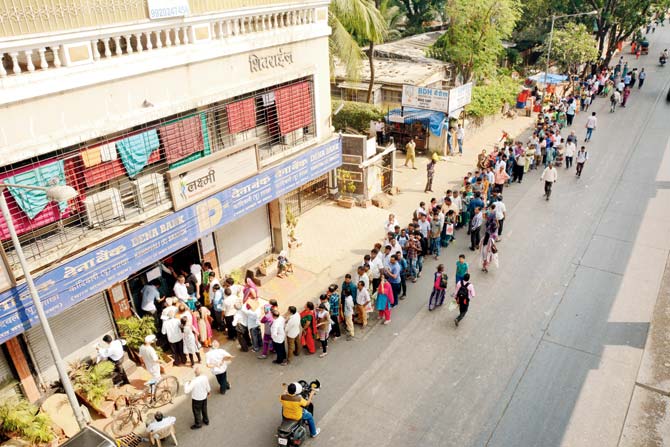Why do successive governments spend so much time and energy patting themselves on the back for all the wrong reasons?

 Why do successive governments spend so much time and energy patting themselves on the back for all the wrong reasons?
Why do successive governments spend so much time and energy patting themselves on the back for all the wrong reasons?
I sometimes wonder why successive governments bother with the pretence of showing that things are being effectively managed and that they are working hard towards improving the quality of our lives, when most of us know that the only thing they want to focus on is Public Relations. It's why a lot of time and energy (as well as money that may or may not be theirs to spend in the first place) was recently spent by our current bunch of elected politicians in order to inform anyone who cared to listen that India is now a marginally easier place to do business in.

What ease of doing business? The government hasn't said a word about why it didn't give us access to our own money for a few dark months early this year. File pic
Apparently, our glorious nation jumped a record 30 places in the World Bank's 'ease of doing business' ranking, which is supposed to make us all feel a little better about ourselves. This doesn't necessarily mean that starting a business is any less stressful that it was, say, a month ago, only that there are now a few more countries who make the lives of their citizens a lot more unnecessarily complicated than our own country does. It doesn't necessarily mean you won't have to struggle with bribing a few government employees at some point down the road either, because everyone with half a brain knows that India is as serious about tackling corruption as Salman Khan is about making an Oscar-nominated film.
None of this stopped the government from going into PR overdrive though, talking about how this will drive growth, create millions of new jobs and add lakhs to our shrinking middle-class bank accounts if we will simply vote the same bunch of people to power one more time. It hasn't said a word about the last time it promised money in our accounts, nor has it explained why it didn't give us access to our own money for a few dark months early this year, because explanations aren't necessary when you can simply distract millions of us with non-issues.
What the government chose not to focus on was the second piece of information, which affects more millions than the reducing of a few forms and processes ever will. This report came from the World Economic Forum, which has been tracking the progress being made by the world towards better parity between the sexes. Naturally, reports like this are amusing in India, where concepts like equal pay can only be discussed after we first acknowledge that we have gone out of our way, historically, to deny that women are born equal to begin with.
According to the WEF report, there was a bit of progress towards parity in some countries over the past decade, but its Global Gender Gap Report shows that this has come to a stop. Our glorious land - where mothers and sisters are respected by everyone all the time, except for the 365 days when they are not - has reportedly slipped 21 places to 108. China and Bangladesh now treat their women better, presumably because they aren't as obsessed with cows as some of us are. Worse, India's ranking is supposedly 10 notches lower than it was in 2006, when the Forum started measuring the gender gap.
Some believe this drop is on account of fewer women participating in the economy and lower wages being offered to them. The latter is easily verifiable; simply ask the nearest maid or day labourer what she earns as opposed to what her husband gets, for the exact same job. The former is worrying though, because it points to a lack of faith. If fewer women want to get into the job market or drive the economy in some way, a sensible government would ask itself why that is. What does it say about our work places, or the opportunities we provide, or the promises we make or don't make to encourage more women to get out of their homes? Why are so many women choosing to opt out? Our governments choose to respond to statistics like these with silence, because hashtags about gender inequality don't make for great social media campaigns.
The Forum says women will have to wait an estimated 217 years for the pay gap to close. I don't suppose it will happen here though, because our government of that distant future may still have more important things to worry about — like how to ensure we are more patriotic, how to make sure filmmakers don't offend religious sensibilities, and how to make the rich get richer just a little bit easier.
When he isn't ranting about all things Mumbai, Lindsay Pereira can be almost sweet. He tweets @lindsaypereira. Send your feedback to mailbag@mid-day.com
 Subscribe today by clicking the link and stay updated with the latest news!" Click here!
Subscribe today by clicking the link and stay updated with the latest news!" Click here!









